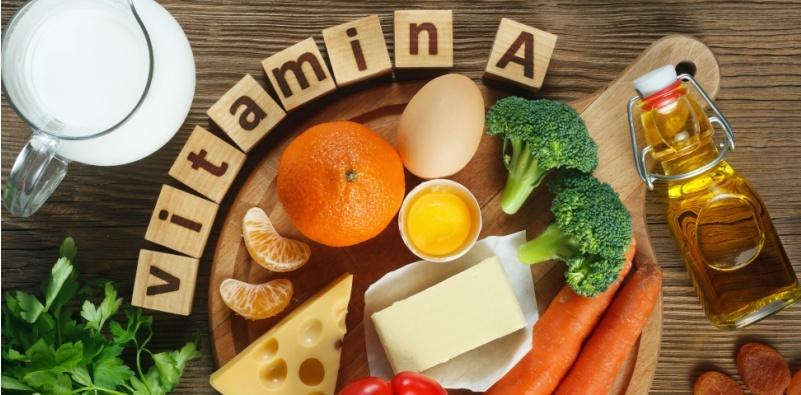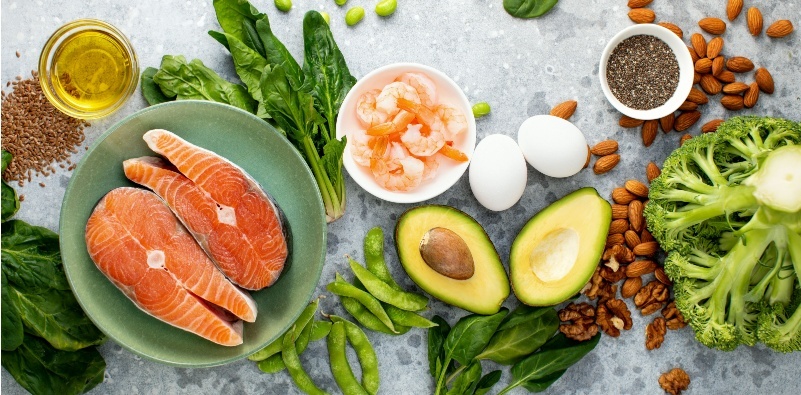What foods contain the best vitamins for the eyes?

With March being Nutrition Month, we want to talk to you about the link between nutrition and eye health. What you eat can affect your overall health in many ways, and that includes your eye health, so consider your diet when thinking about how to take good care of your eyes.
Some studies have shown that certain nutrients can decrease the risk of developing eye diseases, such as age-related macular degeneration (AMD) and cataracts, or even slow down their development. So, what foods are good for your eyes? We have some expert insights into the best foods you can incorporate into your family’s meals to provide vitamins for the eyes and boost your eye health.
Lutein and zeaxanthin
First, let’s look at lutein and zeaxanthin. These antioxidants have become known for helping your eye health in recent years. Several studies show that they are associated with reducing the risk of chronic eye diseases such as AMD and cataracts. You can find these nutrients in dark green leafy vegetables, colorful fruit, broccoli and egg yolks.
Vitamin C
The benefits of including vitamin C in your diet include improving eye health by lowering the risk of developing cataracts. It’s also one of the important nutrients that slows the progression of AMD and vision loss. Citrus fruits such as oranges and grapefruit are high in vitamin C, as are bell peppers, kale, and tomatoes.
Vitamin E
Vitamin E is a fat-soluble antioxidant that protects the cells in your eyes from free radicals, which can break down and degenerate the healthy tissue of your eyes. The retina contains a high concentration of fatty acids, so vitamin E is essential for optimising your ocular health. Vegetable oils, sunflower seeds, tree nuts and sweet potatoes are all good sources of vitamin E.
Vitamin A
A deficiency in vitamin A is a common cause of blindness, so it’s important to make sure you get enough. Warning signs that you could be low on vitamin A include dry eye, night blindness, or difficulty seeing in low light. This is because you need this vitamin to maintain the light-sensing cells in your eyes. Luckily, it can be found in lots of foods, including fish, dairy, orange and yellow vegetables, and green leafy vegetables.
Fatty acids
Omega-3 fatty acids EPA and DHA are vital for the development of the eyes and keeping them healthy. Including them in your diet may help reduce dry eye by supporting the eye’s oily layer and enhancing tear production. Omega-3 can also help reduce pressure in the eye, lowering the risk of developing eye diseases like glaucoma. Oily fish such as salmon and tuna are the best sources of omega-3.
Zinc
Zinc is essential for bringing vitamin A from the liver to the retina, which enables the production of melanin, a pigment that protects against harmful light. Cataracts and poor vision at night have been linked to zinc deficiency. Zinc can be found in red meat, shellfish, and nuts and seeds.
Give your eye health a boost
We hope our explanation of eye-friendly nutrients like vitamin C and zinc benefits, alongside our eye care tips for nutrition, have been helpful. Now, it’s up to you to start including some of the foods we’ve suggested into your meals and give your eye health a good boost.








